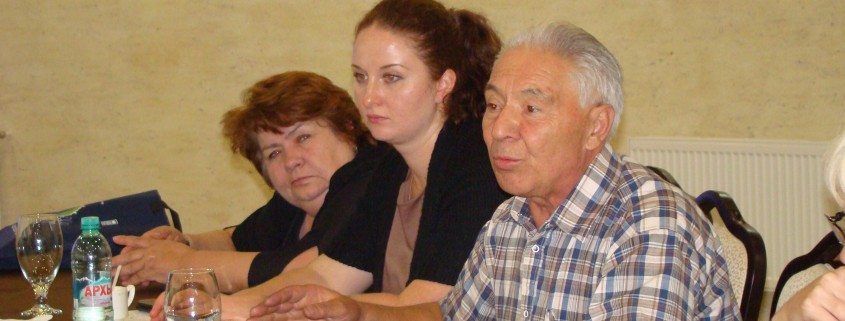Strengthening civil society organizations from the Eastern Partnership region
The most recent and significant achievements by Moldova are visa-free travel to the EU since 28 of April, 2014 and the signing of an Association Agreement (AA) on 27 of June, 2013. Despite, one of Moldova’s most Eurosceptic groups are national minorities that constitute approximately 22% of the population.
National minorities have general knowledge about the European Union, but it is still limited. They know little about the European integration process, the Eap AA or DCFTA. As a result they fear change. Often minorities in Moldova are affiliated with the Russian speaking population, because many either do not know national language or prefer to use Russian. Most of the national minorities perceive Russia as a positive international actor, while central authorities fail to run a proper information campaign about the EU and Moldova’s European integration process.
With the purpose to address these issues, and fill in the gap MRG organizes well-prepared and comprehensive advocacy programme in EaP countries. Within the programme activities minority organizations from Moldova are given an opportunity to participate in country trainings and seminars on the Eastern Partnership processes and minority rights advocacy. These trainings help to improve knowledge and raise awareness over the EaP processes of their own country. In fall, 2014 MRG launched a call for public information campaigns which was open to minority organizations. Project recipients have been tasked to concentrate on the promotion of awareness of the Eastern Partnership and how minorities benefit from the process. Public organization society of Bulgarian Culture – “Rodolubets” from Transnistrian region of Moldova had been selected as one of the winning applicants. The information campaign elaborated by Rodolubets aimed to increase minority communities understanding on Eastern Partnership and how the EU –Moldova cooperates. Also the project aimed at consolidating Bulgarians from Transnistria region in preserving their identity. During three months period, there have been 15 meetings in different towns of Transnistria arranged by the organization leaders. Around 200 members and participants of these meetings have benefited from the information meetings, therefore increasing their awareness over the EaP. Information campaign entitled “Let’s preserve together our culture”, had an aim to exchange the experience between civil society organizations as well as to raise awareness about the EaP processes. In the framework of these working sessions, an agreement has been reached to create a consortium which was joined by seven Transnistrian NGOs, as well as specific agreements have been achieved with several Urkainian, Russian, Gagauzian, Belarus and one International German-Danish institution.
At the conference entitled “Transnistria is multinational” held on 22 of October, 2014 coordination council has been formed which adopted a resolution to work jointly for the next three years. Conference agenda consisted of the sessions, where participants could share recommendations on best practices of the EaP countries as well as to strengthen relationship with European organizations.



